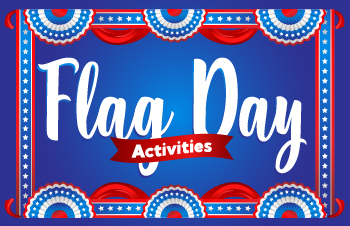Eighth Grade Reading Activities & Curriculum Standards
Eighth grade is such an exciting time for students. This final year of middle school is both a time to review previous concepts and to prepare for the rigorous study challenges of high school which lie ahead. This is true for literacy as well. Now is the time to shore up reading skills, address any previous learning gaps, and continue building up a strong literacy foundation.
Time4Learning’s eighth grade language arts lessons cover all English language arts strands. The major language arts strands for an eighth grade reading program are vocabulary development, reading comprehension, literature, writing strategies, writing applications, English language conventions, listening, and speaking. Each strand provides critical lessons for an eighth grade reading program.
What Are the Eighth Grade Reading Standards and Curriculum?
Eighth grade reading activities provide an opportunity for children to describe and connect essential ideas, arguments, and perspectives by using their knowledge of text structure, organization, and purpose.
Eighth grade reading program students learn through guided reading and using many creative methods. Time4Learning lesson plans include a mixture of interactive activities, engaging language arts games, and printable reading worksheets. Our curriculum empowers your child on the road to literacy with a host of reinforcement exercises, assessments, and positive reinforcement.
Utilizing a comprehensive reading curriculum, Time4Learning creates a strong foundation for your eighth grader in the following language arts strands:
Vocabulary Development
Consider this year a major milestone for vocabulary development. Students will find an expansion of vocabulary skills applied through all their academic studies. Time4Learning nurtures these word building skills throughout the eighth grade reading program. Your child will learn to:
- Apply knowledge of word origins and word relationships, as well as historical and literary context clues, to determine the meaning of specialized vocabulary
- Verify understanding of word meanings by definition, restatement, example, comparison, or contrast
- Discover new vocabulary through reading activities on synonyms, antonyms, homonyms, and idioms
- Review and increase his/her understanding of root words, prefixes, and suffixes
Reading Comprehension
Eighth grade students will find the reading comprehension strand as a core component of Time4Learning’s reading program. As students are challenged, they are supplied with the instruction and support needed to garner a deeper understanding of the material they read.
Time4Learning eighth grade students will study:
- Reading with fluency while applying comprehension strategies
- Literary criticism by analyzing a work of literature, then showing how it reflects the heritage, traditions, attitudes, and beliefs of its author
- Principles of expository critique (Ex.: evaluating the unity, coherence, logic, internal consistency, and structural patterns of text)
- Reading and responding to historically or culturally significant works of literature that reflect and enhance their studies of history and social science
- Clarification of ideas and connections with other literary works
- How to apply comprehension skills to literary and expository texts by using summary, paraphrase, and synthesis
- Analyzing content for main idea, supporting details, using charts and graphs, cause and effect, author’s purpose, and making inferences to gain maximum comprehension.
Language Arts & Reading Comprehension
Time4Learning utilizes language arts to strengthen reading comprehension. Language arts lesson plans help eighth grade reading students read one million words annually on their own, including a good representation of narrative and expository text (e.g., classic and contemporary literature, magazines, newspapers, online information). Good grammar is also of vital importance.
The lessons are primarily based on reading comprehension, writing skills, and vocabulary. Independent learning activities (ILA), think alouds, interactive guided instruction, and read and respond lessons will build and develop working knowledge of language arts skills and give students plenty of practice.
Students using Time4Learning’s eighth grade reading curriculum will learn to:
- Understand the most important points in the history of the English language and use common word origins to determine the historical influences on English word meanings
- Discern structural features of literature (Ex.: study of the relationship between the purposes and characteristics of different forms of poetry, including ballad, lyric, couplet, epic, elegy, ode, and sonnet)
- Analyze idioms, analogies, metaphors, and similes to infer the literal and figurative meanings of phrases
- Demonstrate reading skill by following technical directions and indicate understanding by explaining complex concepts
- Showcase reading skill by using information from a variety of consumer, workplace, and public documents to explain a situation or decision and to solve a problem
- Identify and analyze recurring themes, such as good versus evil across traditional and contemporary works
- Recognize significant literary devices such as metaphor, symbolism, dialect, and irony, that define a writer’s style and use those elements to interpret the work
Literary Response
Another key element of the eighth grade reading program is literary response and analysis using an eighth grade reading list. Comprehension and analysis allow students to explore literary works from a variety of angles.
Time4Learning’s eighth grade reading curriculum will teach students to:
- Find similarities and differences between texts in the treatment, scope, or organization of ideas
- Compare the original text to a summary to determine whether the summary accurately captures the main ideas, includes critical details, and conveys the underlying meaning
- Perform a narrative analysis of reading skill appropriate text
- Evaluate structural elements of a plot, including subplots, parallel episodes, and the climax, the plot’s development, and the way in which conflicts are (or are not) addressed and resolved
- Compare and contrast motivations and reactions of literary characters from different historical eras confronting similar situations or conflicts
- Develop reading skills by analyzing the relevance of the setting (place, time, customs) to the mood, tone, and meaning of the text
- Analyze the effect on the viewer of images, text, and sound in electronic journalism, identifying techniques used to achieve the effects in each instance studied
*Reading Standards are defined by each state. Time4Learning bases its use of reading standards on the national bodies that recommend curriculum and standards and the interpretations of it by a sampling of states notably Florida, Texas, and California.
Writing Applications & Reading Strategy
By eighth grade, students are tackling more demanding writing assignments. The reading strategy will include development of reading skills by writing narrative, expository, persuasive, and descriptive texts of at least 500 to 700 words in each genre. Time4Learning eighth graders will be taught to:
- Develop age appropriate writing skills
- Accurately apply punctuation, grammar, and syntax skills
- Work through a variety of prewriting projects
- Compose persuasive composition, addressing possible audience concerns or counterarguments
- Write a college application essay
- Generate several different styles of writing (informational reports, travel brochures, free verse poetry, newspaper articles, biography, and more)
- Use proper verb forms, adverbs, colons, and semicolons
- Apply correct usage of infinitives, participles, and modifiers
- Understand rules associated with comparative and superlative adjective usage, vowel and consonant rules, structural units within words, and exceptions to spelling rules
- Practice common editing strategies (subject verb agreement, parallel structure, capitalization, end punctuation, quotation marks, fragments, and run-ons)
- Utilize technology by creating documents using word-processing skills and publishing programs
- Develop simple databases and spreadsheets to manage information and prepare reports
The development of listening and speaking skills is a valuable part of the eighth grade reading strategy. Students are expected to deliver focused, coherent presentations that convey ideas clearly and relate to the background and interests of the audience. Time4Learning incorporates this within the eighth grade reading program by training students to:
- Read narrative and expository text aloud, fluently and accurately, and with appropriate pacing, intonation, and expression
- Apply comprehension strategies while practicing fluency
- Match word meanings accurately within the context
- Read independently and convey critical analysis of material covered with minimal support
- Use speaking techniques, including voice modulation, inflection, tempo, enunciation, and eye contact, for effective presentations
- Deliver well-organized narrative presentations demonstrating eighth grade reading skill in establishing a context, point of view, and a standard plot line having a beginning, conflict, rising action, climax, and denouement
Throughout the Time4Learning eighth grade reading strategy, your child with have the ability to move ahead at their own pace. This allows your child the ability to excel in confidence and skills. As your student progresses through the program, the growth in reading comprehension, writing techniques and literary fluency will set the tone for success in the high school years!










